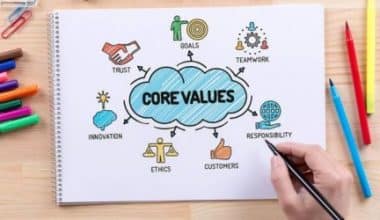Effective communication is a crucial aspect of any successful workplace. It helps to build trust and understanding among colleagues, improves productivity and efficiency, and ultimately leads to better results.
Clear and open communication allows team members to work together effectively, by ensuring that everyone is on the same page and understands their roles and responsibilities.
For example, regular team meetings and progress updates can help to keep everyone informed and engaged, and can help to identify and resolve any issues that may arise.
It also helps to build a positive and supportive work environment, by promoting open and honest dialogue and encouraging collaboration and teamwork.
This can help to build trust and mutual respect among colleagues, which in turn can lead to better relationships and more effective problem-solving.
Good communication can help to improve productivity and efficiency in the workplace.
By ensuring that everyone is aware of what is expected of them, and by providing regular feedback and support, managers and supervisors can help to motivate and inspire their team members to work to their full potential.
Why Is Communication Important In The Workplace
Communication is important in the workplace for a variety of reasons, including the following:
#1. Facilitating teamwork and collaboration
Effective communication is essential for building a cohesive team and promoting collaboration among colleagues. It allows team members to share ideas, provide feedback, and work together to achieve common goals.
#2. Improving productivity and efficiency
Good communication can help to ensure that everyone is aware of their roles and responsibilities, and can help to identify and resolve any issues that may arise. This can lead to greater productivity and efficiency in the workplace.
#3. Building trust and understanding
Effective communication promotes open and honest dialogue and helps to build trust and understanding among colleagues. This can lead to better relationships and more effective problem-solving.
#4. Preventing misunderstandings and conflicts
Clear and open communication can help to prevent misunderstandings and conflicts from arising by ensuring that everyone has the information they need to make informed decisions.
#5. Enhancing employee engagement and motivation
Regular feedback and support can help to keep employees informed and engaged, which can lead to increased motivation and job satisfaction.
#6. Improving decision-making
Good communication can help to ensure that all stakeholders are informed and included in the decision-making process, leading to better decisions and outcomes for the organization.
#7. Building reputation and client relationships
Communication can help to improve the reputation of the organization and build stronger relationships with clients and customers.
What Does Communication Mean in the Workplace?
In the workplace, communication refers to the exchange of information, ideas, and messages between employees, team members, and other stakeholders.
It can take many forms, including verbal, written, and nonverbal communication, and can occur through a variety of channels, such as face-to-face conversations, email, phone, and video conferencing.
Effective workplace communication is essential for achieving organizational goals and objectives, by ensuring that everyone is aware of their roles and responsibilities, and by promoting collaboration and teamwork among colleagues.
It also helps to build trust and understanding among team members and to resolve issues that may arise.
Effective communication in the workplace can be both formal and informal. Formal communication includes official memos, reports, and announcements, while informal communication includes casual conversations and gossip.
Effective communication in the workplace can also include upward communication, downward communication, and horizontal communication.
Upward communication refers to the flow of information from subordinates to superiors. Downward communication refers to the flow of information from superiors to subordinates. And horizontal communication refers to the flow of information between peers.
Overall, effective communication in the workplace is essential for building a successful and productive work environment. This helps to ensure that everyone is informed, engaged, and working towards common goals.
What are the Benefits in Effective Communication in a Workplace?
Effective communication in the workplace can bring a variety of benefits for both employees and the organization as a whole, including:
#1. Improved productivity and efficiency
Clear and open communication can help to ensure that everyone is aware of their roles and responsibilities, and can help to identify and resolve any issues that may arise. This can lead to greater productivity and efficiency in the workplace.
#2. Better teamwork and collaboration
Effective communication promotes open and honest dialogue and encourages collaboration and teamwork, which can lead to better relationships and more effective problem-solving among colleagues.
#3. Reduced misunderstandings and conflicts
Good communication can help to prevent misunderstandings and conflicts from arising. It helps to ensure that everyone has the information they need to make informed decisions and by promoting a culture of openness and transparency.
#4. Increased employee engagement and motivation
Regular feedback and support can help to keep employees informed and engaged, which can lead to increased motivation and job satisfaction.
#5. Better decision making
Effective communication can help to ensure that all stakeholders are informed and included in the decision-making process, leading to better decisions and outcomes for the organization.
#6. Enhanced reputation and client relationship
Clear, accurate and timely communication can help to improve the reputation of the organization and build stronger relationships with clients and customers.
#7. Improved employee retention
A workplace with good communication culture and practices can help retain employees as they feel valued and heard, and are more likely to stay with the organization.
What are the 4 Ways of Workplace Communication?
There are several ways of communicating in the workplace, but four common forms of communication are:
#1. Verbal Communication
This form of communication includes face-to-face conversations, telephone calls, video conferencing, and any other type of communication that involves the use of spoken words.
It is considered one of the most effective forms of communication, as it allows for immediate feedback and clarification.
#2. Written Communication
This form of communication includes emails, memos, letters, reports, and any other type of written document. It is useful for providing a permanent record of information and for reaching a large audience.
#3. Nonverbal Communication
This form of communication includes body language, facial expressions, tone of voice, and other nonverbal cues.
Nonverbal communication can convey important information and can be used to reinforce or contradict verbal communication.
#4. Visual Communication
This form of communication includes the use of graphics, charts, images, and other visual aids to convey information.
Visual communication can be used to make complex information easier to understand and can be especially useful for presentations and training.
It’s worth mentioning that effective workplace communication is not limited to these four forms of communication, it also includes other forms such as the use of instant messaging, social media, and other digital tools to communicate.
Overall, understanding the different forms of communication in the workplace and how to use them effectively can help to improve communication and achieve better results.
By being able to communicate clearly and effectively, you can build better relationships, resolve issues more quickly and help to create a more productive and efficient workplace.
How Does Communication Improve Teamwork?
Effective communication can significantly improve teamwork by:
- Building trust and understanding: Clear and open communication helps to build trust and understanding among team members, which can lead to better relationships and more effective problem-solving.
- Facilitating collaboration: Good communication promotes open and honest dialogue and encourages collaboration among team members, which can lead to more creative and innovative solutions to problems.
- Clarifying roles and responsibilities: Effective communication helps to ensure that everyone is aware of their roles and responsibilities, which can lead to greater productivity and efficiency in the workplace.
- Resolving conflicts: Clear and open communication can help to prevent misunderstandings and conflicts from arising. This ensures that everyone has the information they need to make informed decisions.
- Improving decision-making: Good communication allows team members to share their ideas and perspectives, which can lead to better decision-making.
- Enhancing employee engagement: Regular feedback and support can help to keep employees informed and engaged, which can lead to increased motivation and job satisfaction.
- Building a positive work environment: Effective communication can help to create a positive and supportive work environment, by promoting open and honest dialogue and encouraging collaboration and teamwork.
How can I Communicate Better in the Workplace?
Here are some tips for communicating effectively in the workplace:
- Be clear and concise: When communicating, make sure to use simple and straightforward language. Avoid using jargon or technical terms that others may not understand.
- Listen actively: Effective communication is a two-way process. Make sure to listen actively to others and show that you are paying attention.
- Show respect: Treat others with respect and avoid being confrontational or dismissive of their ideas.
- Use the appropriate channel: Choose the most appropriate communication channel for the message and the audience. For example, an email may be more appropriate for a formal message, while a face-to-face conversation may be more appropriate for a sensitive issue.
- Be adaptable: Be open to different communication styles and be willing to adapt your communication style to suit the situation and the audience.
- Provide feedback: Provide regular feedback and support, which can help to keep employees informed and engaged.
- Be attentive to nonverbal communication: Be aware of nonverbal cues, such as body language and tone of voice. Further use them to reinforce or contradict verbal communication.
- Keep it professional: Maintain a professional tone and avoid using offensive language or making personal attacks.
- Follow up: Follow up on important conversations and make sure that everyone is clear on the next steps.
- Practice: Communication is a skill that can be improved through practice. Take every opportunity to communicate with others and learn from your experiences.
How Do You Ensure Effective Communication in the Workplace?
Effective communication in the workplace can be ensured through a variety of methods, including:
- Clearly defining expectations and goals: Make sure everyone knows what is expected of them and what the goals of the organization are.
- Encouraging open communication: Create an environment where people feel comfortable sharing their thoughts and ideas.
- Active listening: Listen to what others have to say and respond thoughtfully.
- Providing feedback: Give feedback in a constructive and timely manner.
- Resolving conflicts: Address conflicts as soon as they arise and work. Find a solution that is satisfactory to all parties involved.
- Considering cultural differences: Be aware of and respectful of the cultural backgrounds of your colleagues.
- Using appropriate communication channels: Choose the most appropriate method of communication for the message and audience.
- Maintaining Professionalism: Keep the communication clear, courteous and professional.
- Continuously Improving: Continuously evaluate the communication process and make necessary adjustments to improve it.
Conclusion
In conclusion, effective communication is essential for the success of any workplace.
It allows for clear and efficient transfer of information, promotes teamwork and collaboration, and helps to resolve conflicts and build trust among employees.
By fostering open and transparent communication, companies can create a positive and productive work environment. This leads to increased job satisfaction, employee retention, and ultimately, success.
However, communication is a two-way street and requires active participation and effort from both management and employees.
RELATED ARTICLES
- The Role of Communication Skills in a Business Environment
- TYPES OF LISTENING: As It Relates to Business Communication
- DOWNWARD COMMUNICATION: Meaning, Examples & Benefits
- Communication Tools for Business: Meaning, Uses & 2023 Best Options






